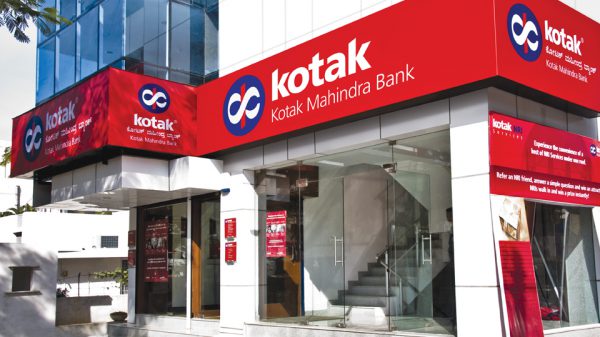The Hyderabad police has justified the use of facial recognition technology (FRT) claiming that it’s a standalone tool used to prevent crime and identify suspected criminals and missing persons in an affidavit filed with the Telangana High Court. The Hyderabad City Police Commissioner CV Anand filed the counter affidavit, reviewed by MediaNama, in response to a petition filed in 2022 challenging the use of FRT by the city police.
Background of the case:
Social activist S.Q. Masood had filed a petition in January 2022 at the Telangana HC challenging the deployment of facial recognition technology in Hyderabad. Masood, who was also photographed by a group of police officers in a public space in 2021, argued in his petition that the police was engaging in unchecked and disproportionate use of FRT without any safeguards in place. This, he stated, was in violation of his right to privacy and of personal liberty under Article 21 of the Indian Constitution. The petition also questioned the use of FRT under the city’s CCTV networks.
FREE READ of the day by MediaNama: Click here to sign-up for our free-read of the day newsletter delivered daily before 9 AM in your inbox.
Hyderabad police’s denials and justifications:
Prevention of crime:
- The police stated in its affidavit that Facial Recognition System (FRS) is being used as a standalone tool to aid investigating officers in prevention of crime and identification of suspected criminals, habitual offenders, suspected terrorist and missing persons.
- This is done by comparing the visuals with the Criminal and Criminal Tracking Network and Systems (CCTNS), a central database for arrested offenders, convicted criminals, wanted persons and missing women and children, maintained by the Indian government.
Denies mass tracking: The affidavit says that FRT is used only to match photograph of a person — moving under suspicious circumstances or those likely to be involved in a crime — with the CCTNS database. It states that the tool is not deployed “covertly and non-consensually” and is used with a targeted objective when required. It also states that it is not connected to the larger public in any way as the FRS does not have a mechanism for mass-tracking and thus does not infringe upon people’s right to privacy too.
Powers stated: The affidavit notes that the police is using FRT as a tool to prevent cognizable offences under Section 149 of the Code of Criminal Procedure (CrPC). It also stated that under Identification of Prisoners Act 1920 and Criminal Procedure (Identification) Act 2022, the police has enough power to use tools such as FRS for prevention of crime and identification of terror suspects. It also states that the section 3 of Identification of Prisoners Act enables police to capture data of persons who have been convicted and imprisoned for more than a year.
Denies allegation of unchecked photo collection:
- The police has clearly denied allegations of unchecked collection of photographs under the FRS in the affidavit. They state that the tool is specifically used for prevention of crime and tracing missing persons or dead bodies, with “adequate safeguards” and “precautionary measures” against misuse of data.
- The document further states that the police department is empowered to conduct regular checks for preventing suspicious activities in society to maintain law and order. The state Covid-19 norms mandated such checks in 2021, it notes.
FRT not linked to CCTV: Hyderabad police’s response says that FRT is independent of the CCTV network and that the two databases are not linked. However, in specific cases, in order to assist an investigation, the CCTV database can be used to match with the FRS database. The police backs general surveillance via CCTVs in Hyderabad under Telangana Public Safety Act 2013 and Rules, 2014 for maintenance of law and order.
What’s missing?
1. The Telangana police has been using the FRS system built in their TSCOP app since 2018, which enables investigating officers to track suspected and missing criminals in real-time. In 2021, MediaNama reported how the Hyderabad police engaged in frisking strangers as “suspects” in crime hotspot areas. While the affidavit notes the usage of TSCOP, it does not provide explanation for grounds of suspecting people as potential criminals.
2. The affidavit states that adequate safeguards and precautionary measures are in place to prevent misuse of data. However, it does not provide an explanation as to what are these safeguards. In 2021, an official from the Hyderabad police had stated that if a picture obtained from scans does not match their data, they delete it from the system. Even then, uncertainty around such claims prevails as people have no means to know what is being done with the pictures.
3. While the police claims in its affidavit that the FRS does not infringe upon the right to privacy of public at large as its use is restricted to identifying suspects with a clear cut objective to maintain law and order. However, in past instances, the police has not provided answers on the individual’s right to privacy, nor has it explained legality of frisking random citizens without warrant. The petitioner questions whether such action passes the privacy test under Supreme Court’s judgment in the K.S. Puttaswamy v Union of India. The affidavit does not provide a substantial argument regarding this.
Concerns raised:
1. The Internet Freedom Foundation had raised concerns over the unconstitutionality of such activities by Hyderabad police in this particular case. It stated that the Identification of Prisoners Act does not permit taking photos of persons by the police, except of those who have been arrested or convicted of crime. It also observed that the Hyderabad police’s act of taking pictures of “suspects” did not pass the Puttaswamy test.
2. Speaking to the SouthFirst about the judgment, Srinivas Kodali, a researcher with the advocacy organisation Free Software Movement of India, said that the police essentially obtain some powers from the district magistrate or judicial authority to perform a certain action. He raises the question of consent off an individual, whose picture is being taken and states that the police cannot randomly demand to know their identity.
3. Kodali also highlights dangers of FRS exercises in terms of profiling certain communities. As the Hyderabad police has stressed on the use of FRS for targeted locations and purposes, Kodali states that the police is doing it to only certain section of people, specifically socio-economically weaker communities, without any due process. “It’s a very inhumane discriminatory exercise,” he states. It is also interesting to note that Police Commissioner CV Anand had said during an Annual Press Meet in December that the Hyderabad police does not use FRS as “it amounts to human rights violation”.
This post is released under a CC-BY-SA 4.0 license. Please feel free to republish on your site, with attribution and a link. Adaptation and rewriting, though allowed, should be true to the original.
Also Read:
- Hyderabad Police Again Conducting Facial Recognition Scans Of ‘Suspects’ During Patrolling
- Hyderabad Police On A Spree Of Randomly Asking Fingerprints And Facial Data
- Legal Notice To Hyderabad Police Commissioner Highlights Lack Of Lawfulness Of Facial Recognition Measures
- Amnesty Confronts Facial Recognition, Surveillance In Hyderabad By Calling For A Blanket Ban
- “Nothing To Worry”: Chennai Police Justifies Use Of Facial Recognition System On Random Citizens






























